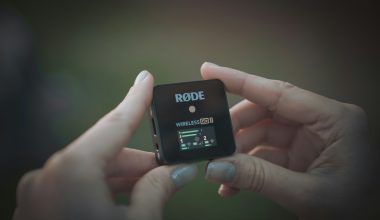If you’ve ever stumbled across the term e.p music meaning you may have wondered what exactly it means. Whether you’re a music lover, an artist starting out, or just curious, understanding this term is essential. In this blog, we will explain everything about e.p music meaning in simple words, making it easy for anyone to follow.
So, let’s begin!
What Does E.P. Stand For in Music?
The term E.P. in music stands for “Extended Play”. It refers to a type of music release that is longer than a single but shorter than a full album. In other words, it sits somewhere between these two popular formats.
While a single usually has just one or two songs, and an album can have eight or more, an E.P. typically contains 3 to 6 songs. This makes it a perfect choice for artists who want to share more music without creating an entire album.
For listeners, E.P. music is a great way to discover new artists or enjoy a quick dose of quality tracks.
Why Is It Called an Extended Play?
The name “Extended Play” comes from the way music was released in the past. Back in the day, vinyl records were the main format for listening to music. Singles usually had one song per side of the record, while albums were much longer and contained many tracks.
However, musicians wanted something that offered a middle ground. They needed a way to include a handful of songs without committing to a full album. That is how E.P. music came to be. It “extended” the length of a typical single but wasn’t as long as an album—hence the name Extended Play.
Even though technology has changed over time and we now stream music online, the concept of E.P. music has stuck around and remains popular today.
How Long Is an E.P. in Modern Music?
In modern music, an E.P. generally runs between 15 to 30 minutes. However, this can vary based on the number of tracks or their lengths. For example:
- If an artist releases 4 songs that are 5 minutes each, the E.P. would total about 20 minutes.
- Another artist might create a 6-track E.P. with shorter songs, adding up to roughly 18 minutes.
The key thing to remember is that E.P. music is shorter than an album but offers more than a single.
How Is E.P. Music Different from an Album?
E.P. music and albums may seem similar, but there are some key differences:
- Number of Songs: E.P.s usually have 3 to 6 tracks, while albums can contain 8 to 12 or more.
- Length: Albums often exceed 30 minutes, whereas E.P.s are typically under 30 minutes.
- Purpose: Artists release E.P.s to share music more quickly or experiment with a new sound. Albums, on the other hand, are more comprehensive and planned projects.
For fans, E.P.s provide a shorter, focused listening experience. They are often packed with energy and creativity, showcasing an artist’s talent in a concise way.
Why Do Artists Release E.P. Music?
Now that we know what E.P. music means, you might be wondering why artists choose this format. Well, there are several reasons:
- Testing New Ideas: Artists can experiment with new sounds or styles without the pressure of creating a full album.
- Cost-Effective: Recording an album takes time and money. E.P.s are quicker and cheaper to produce.
- Building Momentum: For upcoming artists, E.P.s are a great way to grab attention and grow a fanbase.
- Sharing Music Quickly: Fans love hearing fresh music. E.P.s allow artists to release songs more frequently.
- Storytelling: Sometimes, musicians use an E.P. to tell a small story or explore a specific theme.
Overall, E.P. music offers a perfect balance for artists and listeners alike.
How Popular Are E.P.s in the Music Industry?
E.P. music has become increasingly popular over the years, especially in today’s streaming age. Many famous musicians have released successful E.P.s to great acclaim. For example:
- The Weeknd released his early E.P.s, which helped him rise to stardom.
- Billie Eilish’s debut E.P. gained worldwide attention before she released a full album.
E.P.s allow artists to showcase their skills, build excitement, and keep fans engaged without waiting years for a full album.
What Genres of Music Use E.P.s?
The beauty of E.P. music is that it is not limited to one genre. Artists across all styles of music have embraced the E.P. format. Some of the most common genres include:
- Pop Music
- Hip-Hop and Rap
- Rock and Alternative
- Electronic Music
- Indie Music
- R&B and Soul
From mainstream artists to independent musicians, E.P.s offer a flexible way to release music across all genres.
What Are Some Famous E.P. Music Releases?
If you’re looking to dive into E.P. music, here are some iconic releases to check out:
- “My Dear Melancholy,” by The Weeknd – A dark, emotional E.P. that gained critical acclaim.
- “Don’t Smile at Me” by Billie Eilish – This E.P. helped establish her as a global star.
- “Love Yourself: Her” by BTS – A K-pop E.P. that became a massive hit worldwide.
- “Nirvana” by Sam Smith – A soulful E.P. that highlights their vocal talent.
These examples show how E.P. music can have a huge impact, often serving as a stepping stone for artists’ careers.
Should You Listen to E.P. Music?
Absolutely! E.P. music is a fantastic way to enjoy new songs without investing too much time. It is perfect for:
- Discovering new artists
- Exploring new genres
- Enjoying fresh music from your favorite musicians
Plus, E.P.s often feel more personal and creative. Many artists use them to experiment, offering listeners something unique and special.
Conclusion: Why E.P. Music Matters
In simple terms, e.p music meaning “Extended Play,” a format that gives you more songs than a single but less than an album. For artists, it’s a chance to share music quickly, experiment, or grow their audience. For fans, it’s an opportunity to discover new tracks without the commitment of a full album.
Whether you are a listener or an artist, e.p music meaning hold a special place in the music world. They are short, impactful, and filled with creativity. So next time you hear about an E.P., you’ll know exactly what it means—and you might even discover your next favorite track!
For further reading, explore these related articles:
For additional resources on music marketing and distribution, visit DMT Records Pvt. Ltd..






